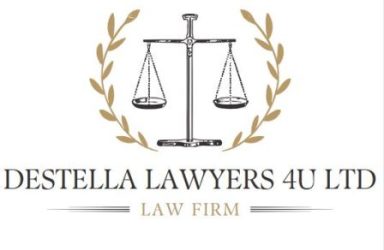Our Practice

Business law
Child Custody and Visitation: This involves determining both legal and physical custody of children during a divorce or separation, as well as the visitation rights for non-custodial parents.
Child Support: This refers to the establishment of financial obligations from one parent to another for the upbringing of the child.
Adoption: This encompasses the legal processes involved in adopting a child, which can include both domestic and international adoptions.
Divorce and Separation: These are the legal proceedings for dissolving a marriage, which include the division of property, spousal support, and related issues.
Protective Orders: This involves obtaining restraining orders or other protective measures in incidents of abuse or domestic violence.
Child Welfare: This pertains to the involvement of child protective services in cases of neglect or abuse, aiming to ensure the safety and welfare of children.
Paternity: This is the process of determining the legal father of a child, which can influence custody and support matters.
Foster Care: This covers the legal processes and rights associated with placing children in foster homes.

Employment Civil
Legal Consultation: Advising clients on employment rights, obligations, and legal options related to workplace issues.
Employment Dispute Resolution: Assisting with disputes such as wrongful termination, discrimination, harassment, retaliation, and wage disputes.
Drafting and Review of Contracts: Preparing, reviewing, and negotiating employment contracts, non-compete agreements, confidentiality agreements, and other related documents.
Representation in Litigation: Representing clients in court or administrative proceedings related to employment civil matters, including lawsuits filed before labor boards or civil courts.
Negotiation and Settlement: Facilitating negotiations between employers and employees to reach amicable settlements without protracted litigation.
Compliance and Advisory: Ensuring clients abide by employment laws and regulations, such as anti-discrimination laws, labor standards, and occupational health and safety requirements.
Drafting Policies: Assisting employers in creating clear workplace policies to prevent disputes and ensure legal compliance.

Children & Family
Child Custody and Visitation: Determining legal and physical custody of children during divorce or separation, including visitation rights for non-custodial parents.
Child Support: Establishing financial support obligations from one parent to another for the upbringing of the child.
Adoption: Legal processes involving the adoption of a child, including both domestic and international adoptions.
Divorce and Separation: Legal proceedings for dissolution of marriage, including the division of property, spousal support, and related issues.
Protective Orders: Obtaining restraining orders or other protective measures in cases of abuse or domestic violence.
Child Welfare: Involvement of child protective services in cases of neglect or abuse, and proceedings to ensure the safety of children.
Paternity: Determining the legal father of a child, which can affect custody and support issues.
Foster Care: Legal processes and rights related to the placement of children in foster homes.

Criminal & Civil litigation
Legal Defence: Representing clients accused of crimes, ensuring their rights are protected throughout the criminal justice process.
Case Investigation: Gathering evidence, interviewing witnesses, and conducting forensics to build a strong defence.
Legal Advice: Providing clients with guidance on charges, potential penalties, and legal options.
Plea Bargaining: Negotiating with prosecutors for reduced charges or alternative resolutions when appropriate.
Court Representation: Arguing motions, conducting trials, and presenting evidence in court.
Protection of Rights: Ensuring due process, challenging illegal searches and seizures, and defending against violations.
Post-Conviction Actions: Handling appeals, sentencing modifications, or parole hearings if necessary.
Legal Representation: Advocating for clients involved in disputes over contracts, property, personal injury, employment, or other civil matters.
Pleadings and Filings: Preparing complaints, answers, motions, and other legal documents to initiate or respond to lawsuits.

Landlord/ Tenant
Lease Agreements: A lease is a contract between the landlord and tenant that outlines the terms of rental, including the amount of rent, duration, and responsibilities regarding maintenance and repairs.
Security Deposits: Regulations surrounding the collection, handling, and return of security deposits to protect against property damage or unpaid rent.
Rent Payment: Terms regarding how and when rent should be paid, including consequences for late payments.
Right to Habitation: Tenants have the right to a habitable living environment, which includes basic necessities like heat, water, and safe structural conditions.
Repairs and Maintenance: Landlords are typically responsible for maintaining the property and making necessary repairs, while tenants must keep the premises clean and not cause damage.
Eviction: Legal processes for terminating a lease and removing a tenant from the property, which must follow specific state and local laws.
Discrimination: Fair housing laws prevent landlords from discriminating against tenants based on race, color, religion, sex, national origin, family status, or disability.

Personal Injury
Legal Consultation: Advising clients about their rights and possible claims related to injuries from accidents, medical malpractice, product liability, or negligence.
Case Evaluation: Assessing the strength of the injury claim and estimating damages.
Gathering Evidence: Collecting medical records, accident reports, witness statements, photographs, and other relevant evidence.
Claim Filing: Preparing and submitting insurance claims or pursuing legal actions against liable parties.
Negotiation: Engaging with insurance companies and defendants to negotiate fair settlements.
Legal Representation: Representing clients in court if negotiations fail and pursuing litigation to secure compensation for medical expenses, lost wages, pain and suffering, and other damages.
Trial Advocacy: Presenting evidence, cross-examining witnesses, and advocating for clients in court.
Post-Settlement Support: Ensuring proper settlement execution or enforcing judgments.

Will/Probate
Drafting Wills: Assisting clients in creating valid and comprehensive wills that clearly specify their wishes regarding the distribution of their estate after death.
Establishing Trusts: Setting up various types of trusts as part of estate planning, if applicable.
Probate Proceedings: Filing the necessary documents to probate a will, which involves validating the will in court and ensuring the proper administration of the estate.
Estate Administration: Managing the estate’s assets, paying debts and taxes, and distributing the remaining property to beneficiaries as per the will or state law if no will exists.
Legal Advice: Providing guidance to executors, administrators, and beneficiaries regarding their rights and responsibilities throughout the probate process.
Handling Disputes: Representing clients in probate disputes, such as will contests or disputes among heirs.
Tax Planning: Advising on estate and inheritance tax issues and ensuring compliance with relevant tax laws.
Record Keeping: Maintaining accurate records of all proceedings, filings, and transactions related to the estate.

Power of Attorney
Drafting the Document: Preparing clear and legally sound Power of Attorney documents tailored to the client’s specific needs, whether it's general or specific authority.
Legal Advice: Explaining the implications, scope, and limitations of the Power of Attorney to clients, ensuring they understand the powers they are granting or receiving.
Verification and Validation: Ensuring the client’s capacity to grant or accept power of attorney, and verifying the authenticity of signatures and documents as required by law.
Execution: Facilitating the proper signing and witnessing of the PoA document according to legal requirements to ensure its validity.
Registration and Filing: Assisting with registering or filing the Power of Attorney with relevant authorities or institutions if required by law or the nature of the powers granted.
Scope and Limitations: Clearly defining the scope of authority granted, whether it involves financial transactions, property management, healthcare decisions, or other legal matters.
Revocation and Updates: Advising clients on how to revoke or update a Power of Attorney when necessary, and assisting with amendments.
Legal Compliance: Ensuring that the Power of Attorney complies with applicable laws and regulations in the relevant jurisdiction.
We need your consent to load the translations
We use a third-party service to translate the website content that may collect data about your activity. Please review the details in the privacy policy and accept the service to view the translations.
